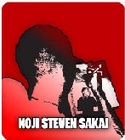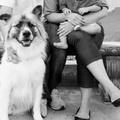Besides Groundhog’s day, my favorite holiday is New Year’s. I look forward to it every year. I always forget though that most people just think it’s a day to watch football. For those who don’t know, New Year’s or “Oshogatsu” in Japan is the most important and elaborate holiday of the year.
When Japanese Americans talk about New Year’s, they usually just mention the “osechi” (New Year’s food). Things like: “soba” (buck wheat noodles) on New Year’s Eve for a long life, the zoni (soup) on New Year’s morning with kurikinton (mashed sweet potato with sweet chestnuts) and kinpira gobo (simmered burdock root) and of course the shot of sake.
But when I think of New Year’s, I think about the Japanese superstition that everything you do on that day is a reflection of the way the rest of the year is going to turn out. To me, this is better than the resolution system because I get to actively shape what’s going to happen to me in the coming year.
I want a good/calm year so I spent my New Year’s day relaxing and hanging out with my wife and my doggie. I also did some writing, took a long walk and made sure to stay happy and positive all day.
Planning the day can be stressful but with the right prep it tends not to be a problem. For example, I can’t spend any money since I don’t want to be spending money all year. So I have to make sure to buy everything I need the day before. I can’t clean or work or do things that can be construed in any way as negative since the last thing I want to be doing this year is any/all of those things.
This tradition has always comforted me because it means that no matter how bad my previous year was, I can shape how the coming year will be.
Are you worried about what you did on New Year’s now? Don’t. You have one year to prepare.
© 2008 Koji Steven Sakai






